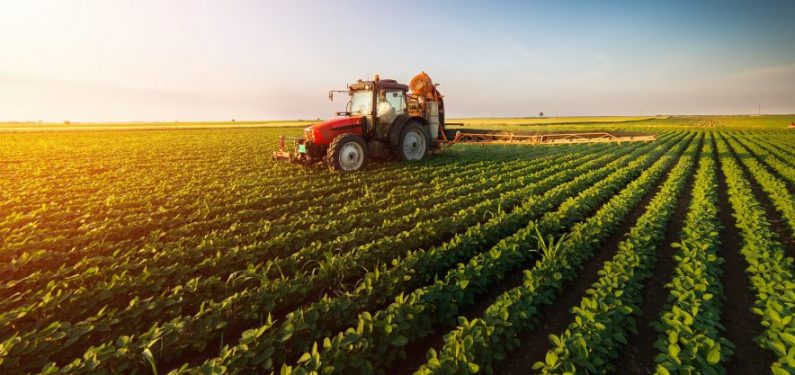
4 Things to Consider When Managing Youthful Employees and Operators on the Farm
May 7, 2020The agricultural community relies on various types of labor to keep what is an enormous portion of the country’s economy turning. This includes family, migrant, and even youthful employees and operators. On family farms, it is not uncommon to have young members of the family operating heavy equipment and even conducting some fairly hazardous tasks around the farm.
This has been a reality of the ag community for generations. Often, it would be the case that minors from non-farm families would also find employment on local family farms. In generations past, the legal climate, especially surrounding the ag industry, was laxer and farmers weren’t faced with as many regulatory challenges as they see in the present day.
This being the case, modern-day commercial farms and family farm operations, alike, must take into consideration the legal implications that accompany the hiring of youthful employees. Here are a few things to consider when it comes to managing youthful employees and operators on the farm:
1. Hours of Employment
Federal law does not restrict agricultural employers when it comes to the number of hours per day that a minor works as it does for other employers. However, it is illegal for a minor under the age of 16 who is working in an agricultural job to work during school hours. Some states have their own, more stringent, restrictions on hours worked per day, or per week, by a minor employee.
An exception to this rule at the Federal level is minors who are employed by a parent or a legal guardian. Federal law dictates that minor employees may not work past 10 pm, and again, many states have more stringent restrictions than the federal allowances. Some states impose additional daily and weekly hour restrictions on minor labor.
For example, Pennsylvania Child Labor Laws prohibit minors under 16 years of age to work more than 8 hours a day and 44 hours per week during times that school is not in session. During weeks when school is in session, the daily hours are limited to 4 and weekly hours are limited to 18. Check each state’s laws so that you are sure you are operating within federal and state compliance.
2. Type of Work
Restrictions exist for minors under the age of 16 pertaining to the type of work that they are allowed to engage in on the farm. For instance, farm employees under the age of 18 are not permitted to operate a tractor with a PTO rating of 20hp or higher.
There are some cases where 14 and 15-year-olds may be permitted to operate specific pieces of equipment if they have undergone a vocational training program and obtained an operator’s certificate with a copy retained by the employer.
Among other things, minor employees are not permitted to work off a ladder or scaffold at a height greater than 20 feet, enter an upright silo within two weeks after silage has been added, handle toxic chemicals, work in a pen holding a bull, stallion, freshened cow, or sow with piglets, or transfer/apply/transport anhydrous ammonia.
3. Record Keeping
Agricultural employers who use minors on the farm should use best practices to ensure compliance with state and federal regulations. Necessary documentation to be maintained is the minor’s name in full, place of residence while employed (if permanent residence is elsewhere, both addresses should be maintained), date of birth, and written consent from the minor’s parent or legal guardian.
4. Insurance
It is important for every farm to have a comprehensive farm insurance plan that covers their operations for property, liability, and worker’s compensation losses. Farms employing minors have an extra reason to be especially detailed about their insurance coverage. Minors who are operating tractors and equipment, even those legally allowed to do so, create a greater claims exposure on the farm due to their inexperience.
In the same way that youthful drivers are responsible for a disproportionate number of automobile accidents, minor operators who do not have as many years of experience can often be the cause of property, liability, and worker’s compensation claims. It is especially necessary to have a worker’s compensation policy in place. This is one of the unique worker’s compensation scenarios around the farm that you need to consider when you are reviewing your farm insurance coverage.
Even in cases where the farmer is in violation of certain labor laws, a worker’s compensation insurance policy will still respond to an injury claim to a minor employee. The farmer could be assessed fines and penalties afterward, but the financial burden on the employer of a worker’s wage loss or lifetime medical bills will be covered by insurance.
These are just a few things to consider when managing youthful employees and operators on the farm. Individual situations will vary, but you will likely need additional liability coverage for your ag operation. It is not all-inclusive and farmers and agricultural employers should consult original sources of information for a comprehensive review of all of the legal details surrounding labor laws and the employment of minors.
If you need assistance in reviewing your insurance portfolio to ensure that your policies are working to properly protect your property, assets, and employees, give one of our experienced ag insurance agents a call at 1-800-537-6880 or 717-665-2283.
Disclaimer: Information and claims presented in this content are meant for informative, illustrative purposes and should not be considered legally binding.

